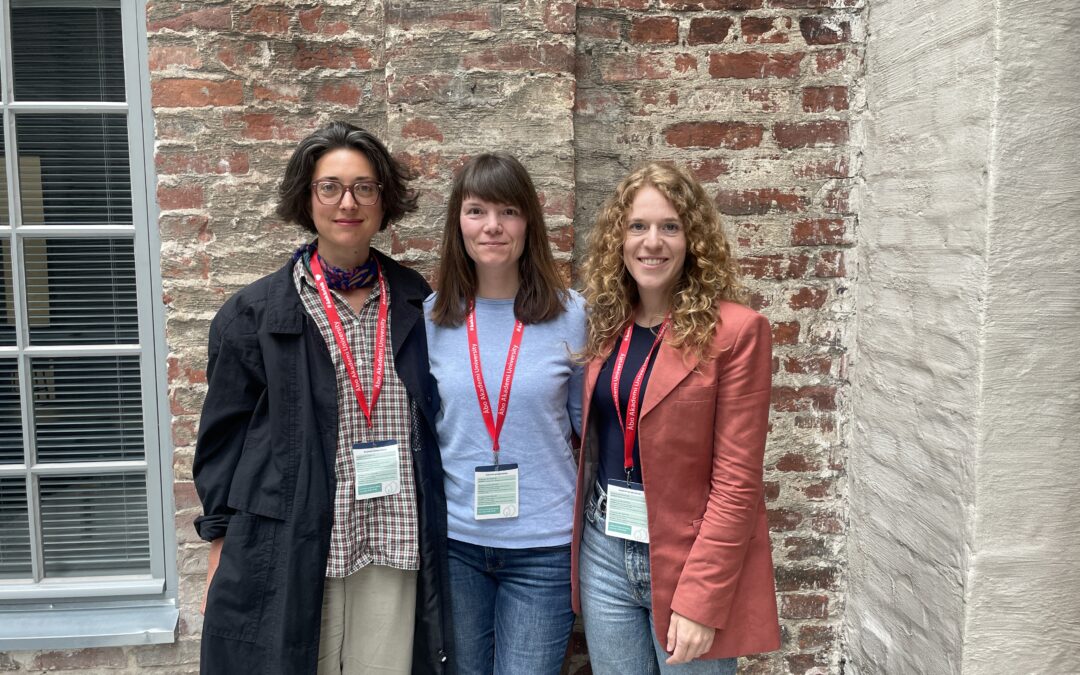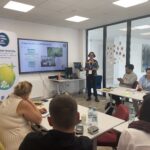We’ve been delighted to participate at the Nordic Environmental Social Science Conference (NESS2024) in Turku from 4 to 6.6.2024, themed “Co-producing knowledge for sustainability”. Three GREENGAGE partners – KWMC, AIT and VRVis – jointly presented recent collaborative efforts and valuable findings. We came back with a fresh view on how we can better support the co-creative experiments in GREENGAGE.
A Space for Mutual Learnings
The conference gave us the possibility to discuss our GREENGAGE approach on Citizen Observatories with peers during the half-day workshop on “Potentials and challenges of citizen science in sustainability transformations”. Different to conventional academic conferences, these workshops opened a space for mutual learning and in-depth feedback as the participants had read the papers beforehand and there was enough time to discuss each contribution in a critical yet solidary space.


In our paper “Towards a Methodological Framework for Citizen Observatories to Promote Inclusive Urban Governance” we reflected on how we organise the GREENGAGE Innovation Action to prepare, test and learn collectively on the different Observatories that we are developing in five Pilots across Europe.
During the first year of the project, we were co-designing these Observatories together with local planning agents, tech-providers, researchers and civic innovators and were forced to bring them all under one conceptual framework. This was very much against the belief that transformation needs to be grounded in specific social-political contexts, stemming from vast KWMC’s expertise and practice that established over the years a neighbourhood-based Living Lab.
So, we envisioned GREENGAGE Observatories as situated, data-driven, community-led intelligence for implementing the European Green Deal that relate to each other within a pan-European policy and governance innovation ecosystem. This is too abstract to engage anyone beyond the academic community and even they can be puzzled. Although the high-level conceptualisation of experiments was needed due to the project brief, its time now for us social scientists to start interpreting and analysing what is happening in the messy real worlds of the different Pilots and to gather colleagues to make sense of GREENGAGE Observatories to enable full-scale piloting after this summer.
Importance of Critical Thinking
Beside these workshops, the keynotes and panel discussions at the conference shine light on the topic of co-creation/co-production from various disciplinary angles and empiric cases. The speakers surfaced critical aspects that need to be considered but are often not addressed, although they are especially meaningful in justice work. Issues that seem most relevant are power, followed by trust, ethics, process, transparency, accountability and many more, as the mentimeter pic shows.
What can be the role of researchers in these? We got ensured that as critical, visionary and engaged action researchers, we are equipped to support these messy processes to become more reflexive and politically engaged. Through critical thinking and analysis, we can pinpoint what is not just, what is not sustainable and what are locked potentials for transformations. We can also co-create “free spaces” where we think about the future, and facilitate arenas for deliberations, to common some futures.. And we can describe where co-creative practices are shaping examples of preferred futures and thus make them visible and contribute to realise them, as we are starting to do in our Bristol Pilot.


Being critical and engaged researchers in co-creative processes is a balancing act, that sometimes is so uncomfortable that it’s hard to trust in what you are doing. For that it is important to come together in someone’s distinctive community of practice, hearing from others that they face similar struggles and get to your own place again, getting secure in between insecurities.






